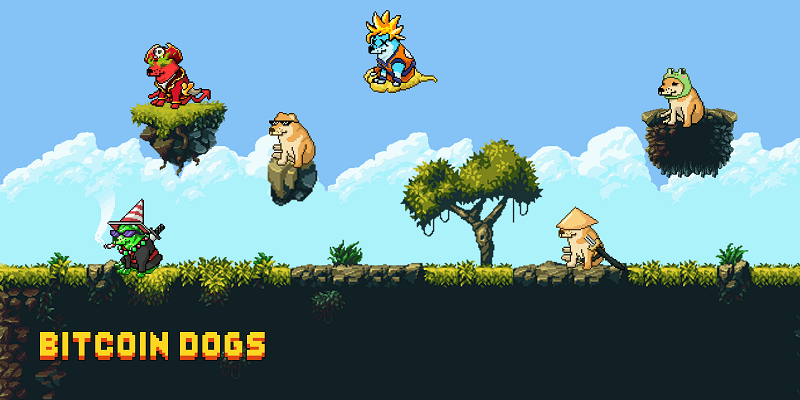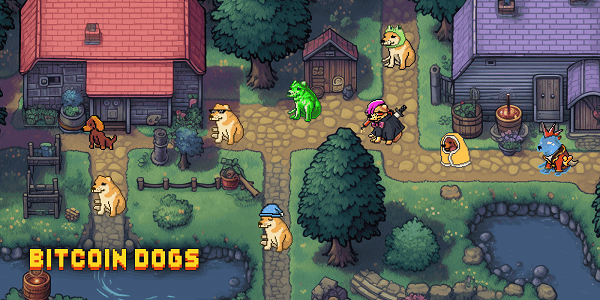Bitcoin(BTC)$68,131.00-0.87%
Ethereum(ETH)$1,975.20-0.04%
Tether(USDT)$1.000.01%
XRP(XRP)$1.47-0.07%
BNB(BNB)$619.690.88%
USDC(USDC)$1.000.00%
Solana(SOL)$86.000.77%
TRON(TRX)$0.2840951.58%
Dogecoin(DOGE)$0.099173-3.05%
 Figure Heloc(FIGR_HELOC)$1.020.00%
Figure Heloc(FIGR_HELOC)$1.020.00%

Who Will Build the Metaverse?
Will the metaverse be developed by incoming web3 natives, existing web2 powerhouses, gamers, NFT pioneers or someone else entirely? The answer is unlikely to be clear-cut, in the same way, that we cannot point to a single faction that built out the web as we already know it.
That said, we can still wonder which entities will develop products and tools that could, when networked together, form something that we might one day refer to as a metaverse. Or, at the very least, who will drive forwards, and push others to join and develop too.
Products Are Underwhelming So Far
Without users, any metaverse-oriented development will be inconsequential, and the reality is that metaversal teasers and works-in-progress have, so far, been distinctly underwhelming.
More histrionic critics of metaverse concepts draw over-wrought comparisons with films such as The Matrix, warning of a dystopian, VR-dipped future in which humanity forgets about the physical world altogether.
While it is diverting to think about such possibilities, along with philosophical curiosities such as Simulation Theory (maybe we are already in an artificial reality, but are not aware of it), when you actually dip into metaverse development up to now, the opposite of unknowing immersion seems more likely: that the experience will be so clunky and uninviting, no-one will use it at all.
In this regard, a risk is that we end up with a variety of virtual ghost towns, fully functioning and navigable, but with no-one there, because why trudge around a pixelated online landscape when there is an entire real world outside?
Game Developers Can Be Key
In order to gain and keep users, there must be a hook, and no one is more adept at building environments that connect with the imagination and activate mental reward circuits than game developers who fully comprehend the mechanics of an addictive digital experience.
For this reason, we should perhaps look to the games industry as a place from which compelling metaverse-type environments might emerge, appealing not only to a subsection of NFT and crypto enthusiasts but to the mainstream. What’s more, the games industry has deep pockets, and can build through every market cycle, including so-called crypto winters.
A criticism of blockchain/play-to-earn gaming has been that it places financial incentives above all else, becoming ponzi-esque, and has gameplay that would hold little appeal were it not for the (precariously transitory) earning potential.
What might effectively kickstart mainstream interest in blockchain gaming and ideas around the metaverse, though, is the reverse: an addictive, AAA game within which crypto has been meaningfully integrated, but not as the be-all-and-end-all.
If enough games-oriented projects can deliver and interconnect, then we might see the beginnings of an organically expanding metaverse that can pull in large numbers of users, and then absorb other verticals.
There have been rumors that Rockstar Games is planning to integrate crypto into the next edition of its Grand Theft Auto series. This is unconfirmed, but if such a development, or something like it, were to occur, it would be a significant step in the right direction.
Games industry giants including Ubisoft, Electronic Arts, and Epic Games have all expressed strong interest in integrating blockchain technology into their games, and then there is Animoca Brands, a huge investor in blockchain gaming.
Yuga Labs
The great hope of the NFT space, Yuga Labs has the capacity to deliver a branch of the metaverse through its Otherside project. Yuga, as the creator of Bored Ape Yacht Club, has funds and status, and instinctively understands NFTs, crypto and the impact that playful communities can have.
Exposure to Yuga Labs can be gained not only through holding Bored Ape Yacht Club NFTs, which trade at very high prices, but also through side projects Mutant Ape Yacht Club and Bored Ape Kennel Club, and via the ApeCoin token (although technically, ApeCoin is governed through the ApeCoin DAO, and is not operated by Yuga).
The most directly metaverse-connected exposure, though, and relatively cheap compared to Bored Ape NFTs, is available through purchasing Otherside land claims, which have dipped in price since their launch.
Metaverse-Focused Teams
There are a number of projects that are purely or primarily metaverse focused and have been building steadily, including The Sandbox, Decentraland, Crypto Voxels, and Pavia. There is also Worldwide Webb, which is an explicitly gaming-centered project with a nostalgic retro aesthetic.
Often, early mover advantage, such as that enjoyed by The Sandbox and Decentraland, is a significant factor in establishing success, but that may not always be the case. In metaverse development, part of its foundation, crypto itself, is still nascent and in flux, and it may be that competitors who emerge later have an advantage of their own, working within a more stable and well-understood system.
Facebook and Meta
As was widely reported last year, Facebook or Meta, as its parent company is now known, is also a key player. To its advantage, Meta has vast resources, tech sector dominance, and tremendous depth of experience. Not many observers would bet against anything related to Facebook, even if only because of the vast firepower and technical knowledge that it has at the ready.
However, despite the Meta rebranding, Facebook is a giant of web2, and is inextricably intertwined with a particular era and outlook, while in some ways, web3 represents a rejection of the philosophy and models embodied by Facebook.
Meta doesn’t possess the cultural/crypto credentials of an entity such as Yuga Labs, and neither does it have the gaming clout of Ubisoft or Rockstar Games. It certainly knows how to hook users into a system, but critically, this side of the social media industry has been increasingly criticized, for example by influential tech pioneer Jaron Lanier, and in the thought-provoking documentary, The Social Dilemma.
Facebook has had no shortage of critical press, while a driving motivation for many web3 advocates is to make a clean break from the last decade of mainstream tech culture and Silicon Valley centralization.
Will the metaverse be developed by incoming web3 natives, existing web2 powerhouses, gamers, NFT pioneers or someone else entirely? The answer is unlikely to be clear-cut, in the same way, that we cannot point to a single faction that built out the web as we already know it.
That said, we can still wonder which entities will develop products and tools that could, when networked together, form something that we might one day refer to as a metaverse. Or, at the very least, who will drive forwards, and push others to join and develop too.
Products Are Underwhelming So Far
Without users, any metaverse-oriented development will be inconsequential, and the reality is that metaversal teasers and works-in-progress have, so far, been distinctly underwhelming.
More histrionic critics of metaverse concepts draw over-wrought comparisons with films such as The Matrix, warning of a dystopian, VR-dipped future in which humanity forgets about the physical world altogether.
While it is diverting to think about such possibilities, along with philosophical curiosities such as Simulation Theory (maybe we are already in an artificial reality, but are not aware of it), when you actually dip into metaverse development up to now, the opposite of unknowing immersion seems more likely: that the experience will be so clunky and uninviting, no-one will use it at all.
In this regard, a risk is that we end up with a variety of virtual ghost towns, fully functioning and navigable, but with no-one there, because why trudge around a pixelated online landscape when there is an entire real world outside?
Game Developers Can Be Key
In order to gain and keep users, there must be a hook, and no one is more adept at building environments that connect with the imagination and activate mental reward circuits than game developers who fully comprehend the mechanics of an addictive digital experience.
For this reason, we should perhaps look to the games industry as a place from which compelling metaverse-type environments might emerge, appealing not only to a subsection of NFT and crypto enthusiasts but to the mainstream. What’s more, the games industry has deep pockets, and can build through every market cycle, including so-called crypto winters.
A criticism of blockchain/play-to-earn gaming has been that it places financial incentives above all else, becoming ponzi-esque, and has gameplay that would hold little appeal were it not for the (precariously transitory) earning potential.
What might effectively kickstart mainstream interest in blockchain gaming and ideas around the metaverse, though, is the reverse: an addictive, AAA game within which crypto has been meaningfully integrated, but not as the be-all-and-end-all.
If enough games-oriented projects can deliver and interconnect, then we might see the beginnings of an organically expanding metaverse that can pull in large numbers of users, and then absorb other verticals.
There have been rumors that Rockstar Games is planning to integrate crypto into the next edition of its Grand Theft Auto series. This is unconfirmed, but if such a development, or something like it, were to occur, it would be a significant step in the right direction.
Games industry giants including Ubisoft, Electronic Arts, and Epic Games have all expressed strong interest in integrating blockchain technology into their games, and then there is Animoca Brands, a huge investor in blockchain gaming.
Yuga Labs
The great hope of the NFT space, Yuga Labs has the capacity to deliver a branch of the metaverse through its Otherside project. Yuga, as the creator of Bored Ape Yacht Club, has funds and status, and instinctively understands NFTs, crypto and the impact that playful communities can have.
Exposure to Yuga Labs can be gained not only through holding Bored Ape Yacht Club NFTs, which trade at very high prices, but also through side projects Mutant Ape Yacht Club and Bored Ape Kennel Club, and via the ApeCoin token (although technically, ApeCoin is governed through the ApeCoin DAO, and is not operated by Yuga).
The most directly metaverse-connected exposure, though, and relatively cheap compared to Bored Ape NFTs, is available through purchasing Otherside land claims, which have dipped in price since their launch.
Metaverse-Focused Teams
There are a number of projects that are purely or primarily metaverse focused and have been building steadily, including The Sandbox, Decentraland, Crypto Voxels, and Pavia. There is also Worldwide Webb, which is an explicitly gaming-centered project with a nostalgic retro aesthetic.
Often, early mover advantage, such as that enjoyed by The Sandbox and Decentraland, is a significant factor in establishing success, but that may not always be the case. In metaverse development, part of its foundation, crypto itself, is still nascent and in flux, and it may be that competitors who emerge later have an advantage of their own, working within a more stable and well-understood system.
Facebook and Meta
As was widely reported last year, Facebook or Meta, as its parent company is now known, is also a key player. To its advantage, Meta has vast resources, tech sector dominance, and tremendous depth of experience. Not many observers would bet against anything related to Facebook, even if only because of the vast firepower and technical knowledge that it has at the ready.
However, despite the Meta rebranding, Facebook is a giant of web2, and is inextricably intertwined with a particular era and outlook, while in some ways, web3 represents a rejection of the philosophy and models embodied by Facebook.
Meta doesn’t possess the cultural/crypto credentials of an entity such as Yuga Labs, and neither does it have the gaming clout of Ubisoft or Rockstar Games. It certainly knows how to hook users into a system, but critically, this side of the social media industry has been increasingly criticized, for example by influential tech pioneer Jaron Lanier, and in the thought-provoking documentary, The Social Dilemma.
Facebook has had no shortage of critical press, while a driving motivation for many web3 advocates is to make a clean break from the last decade of mainstream tech culture and Silicon Valley centralization.












